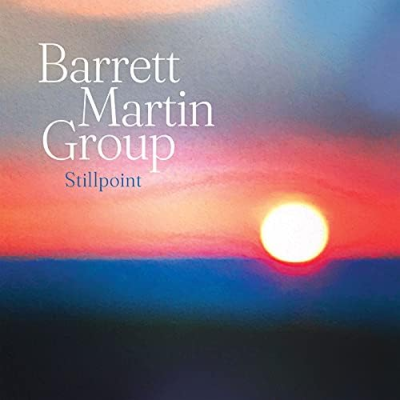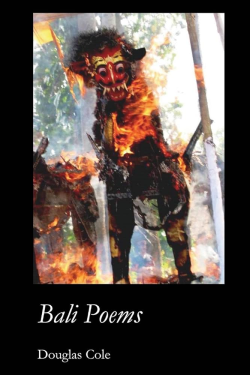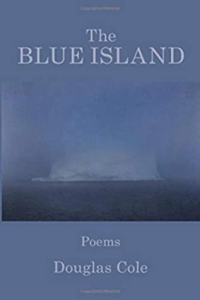.
.
Trading Fours with Douglas Cole is an occasional series of the writer’s poetic interpretations of jazz recordings and film.
A recording of Mr. Cole reading his work is found at the conclusion of the poem.
.
.
___
.
.
 Stillpoint is the 2021 album by Grammy-winning producer, composer, percussionist, and writer, Barrett Martin, who also holds a master’s degree in ethnomusicology and linguistics, and has studied and practiced Zen for over 25 years.
Stillpoint is the 2021 album by Grammy-winning producer, composer, percussionist, and writer, Barrett Martin, who also holds a master’s degree in ethnomusicology and linguistics, and has studied and practiced Zen for over 25 years.
.
___
.
.
..
1
Rain Shadow
“What appears dark or dangerous holds a spark of light”
Martin took to the hills, retreated like T’au Ch’ien
into the mountains away from the human misery
in order to listen clearly to the instructions of river,
rain, darkness and forest—the creatures within
and the wind itself. It’s an old method.
Put your ear down to the ground. Hear past
cascades of thought and turbulent human weather.
“Everything ever thought up originally came from the sea,”
And Yemoja is within the waters of the Strait
and the waters of the Sound, so it’s no surprise
to hear this Zen talk, clear the muddy mind thesis
in the stories and the music of a drummer—
drummers listen not only to the melody of song
but the deep earth’s heartbeat—from the ground,
the body…where is the heart’s true location?
“These birds have a spiritual component
with deep analogues in human behavior”
Tess told me red dye hummingbird food
has bad chemicals—make your own syrup:
one part sugar, two parts water—and clean
the feeder. Bacteria will make them sick.
The small slow beautiful act of feeding birds,
and to hear them say in their high pitch tones
that you might not catch, Top shelf here!
Word gets out, and they appear out of nowhere.
“Spirits pay attention to the sound of metal”
It might be the Mbira I hear in there
A connection with the gamelan—the metal—
the alchemical musical transformation,
that one thing that is the ring of metal—
metal that was rock heated, life music,
sound through the forge of the musician,
musician as metallurgist and transformer
or as Baldwin says of Sonny playing:
he hears something else rising from the void—
and here it is for you on a platter of sound.
Bells, drums, trumpets ringing over constant ringing
that universal vibration, variation, frequency
like the whale song traveling round the oceans
of the world, spirits in the instruments high and low,
traveling near and above and out of sight.
.
2.
The Universal Tone
High on a mountain in Bali
my life in shreds
with Mata Hari pushing up
through a cloud you could walk across
to Jakarta depending on your stride
or with seven league boots
step right into your own mirth
on the invention of this day
standing in the warming air
as a Dutch couple shows up
asking would you take our picture
what can I tell you about the night
about being unprepared
and dressed only in shorts and a t-shirt
with backpack light with water
and a sarong just in case
of following in the pitch black
step for step through the tree
bower opening into a 10,000 foot
mountain ridge under Mars
bright as a blood drop
with the cold wind scoring
the bare peak hours before daylight
and being dislocated from the teeth-
chattering hypothermic idiot on the rock
cuddled up to the tubercular guide
humming so I don’t drop out of sight
and the day like a miracle
woodcutters in the forest chopping away
as we slalom down through volcanic ash
to the seaside surf and plunge in
the fire dancer kicking away hot coals
in the primary drama of the eyes
wide with a million-mile stare
battle-worn and free and almost
surprised to be on stage
wild dogs in the fuming
garbage heaps and banyan vines
wriggling into your nerves
the Dewi Sita clove charmer
and the warung attendant
and my name in the police register
written in invisible ink
no not sorrow on return
but exuberant next-chapter
sun gold and open for adventure
and in spite of the dark endeavors
incense clouds from offering trays
rise from the sidewalk as I hop around
with music under the surface of everything
waves of music droning loud enough
to hang your image on
.
Listen to Douglas Cole read “The Universal Tone”
.
___
.
.
Listen to “To the Sea We Return” from Stillpoint, the 2021 album by the Barrett Martin Group [Sunyata Records]
.
.
Watch Gamelan Semara Ratih of Ubud, Bali, Indonesia, perform “Manuk Anguci,” a now-classic Balinese gamelan instrumental piece composed by I Nyoman Senen, from the village of Pindha, Saba, Gianyar, Bali, Indonesia [Genelic Music Channel]
.
.
Additional Reading:
Quotations in “Rain Shadow” come from Barrett Martin’s Still Point: Reflections From a Year on the Cliff. Sunyata Books, 2021.
.
Click here to read Barrett Martin’s biography on his website
.
.
Bali Poems, by Douglas Cole
(this book does not include “The Universal Tone”)
.
.
___
.
.
photo by Jenn Merritt
 .
.
Douglas Cole has published six collections of poetry and The White Field, winner of the American Fiction Award. His work has appeared in several anthologies as well as journals such as The Chicago Quarterly Review, Poetry International, The Galway Review, Bitter Oleander, Chiron, Louisiana Literature, Slipstream, as well Spanish translations of work (translated by Maria Del Castillo Sucerquia) in La Cabra Montes. He is a regular contributor to Mythaixs, an online journal, where in addition to his fiction and essays, his interviews with notable writers, artists and musicians such as Daniel Wallace (Big Fish), Darcy Steinke (Suicide Blond, Flash Count Diary) and Tim Reynolds (T3 and The Dave Matthews Band) have been popular contributions. He has been nominated twice for a Pushcart and Best of the Net and received the Leslie Hunt Memorial Prize in Poetry. He lives and teaches in Seattle, Washington.
Douglas’ poem, “What We Talk About When We Talk About Kind of Blue,” published as part of his “Trading Fours” series, was nominated for the XLVIII Pushcart Prize
Click here to visit his website.
.
.
The poet’s collection, The Blue Island
.
.
___
.
.
Click here to read previous editions of Trading Fours with Douglas Cole
.
Click here to read The Sunday Poem
Click here to read “A Collection of Jazz Poetry – Winter, 2024 Edition”
Click here to read “The Old Casino,” J.B. Marlow’s winning story in the 64th Jerry Jazz Musician Short Fiction Contest
Click here for information about how to submit your poetry or short fiction
Click here to subscribe to the (free) Jerry Jazz Musician quarterly newsletter
Click here to help support the ongoing publication of Jerry Jazz Musician, and to keep it ad and commercial-free (thank you!)
.
.
___
.
.
Jerry Jazz Musician…human produced (and AI-free) since 1999
.
.
.
.
.
.
































Meditative poem and Gamelan music what a way to start the week!